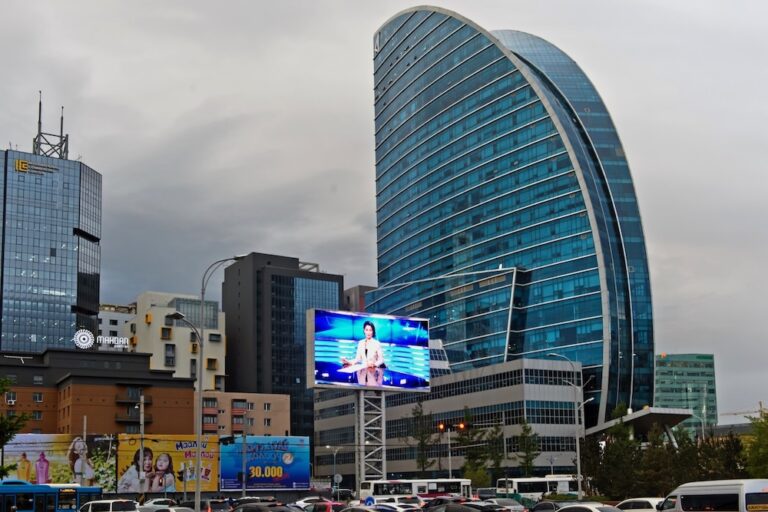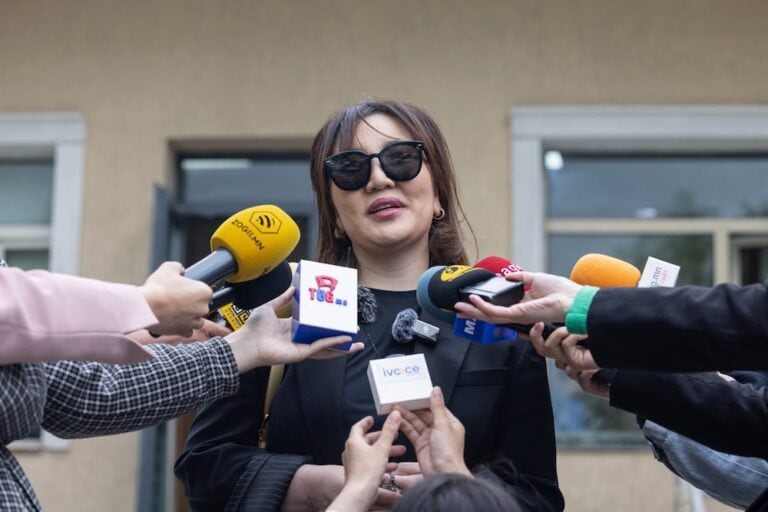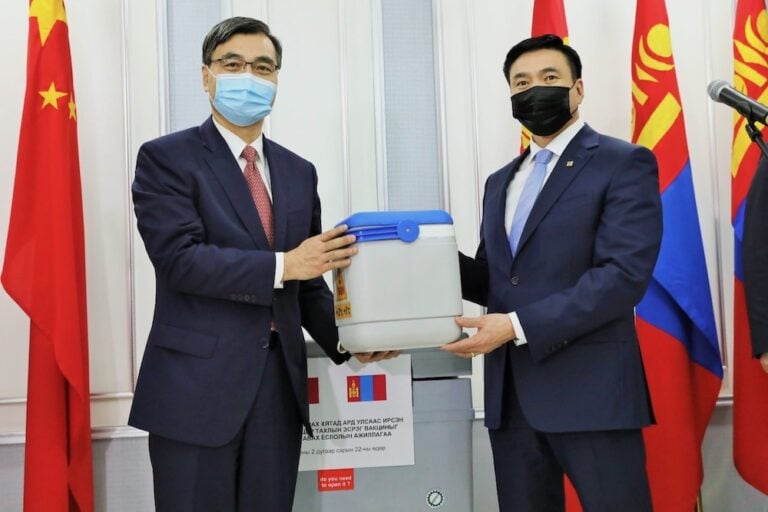(Globe International/IFEX) – Mongolian government officials have been censoring media and demanding journalists to reveal their source of information, says Globe International. Since January 2006, there have been more than 10 press cases involving censorship or demands upon journalists to reveal a source. Female journalist G. Ganchimeg of the Hovd-based weekly newspaper “Hovdyn Medee” (“Hovd […]
(Globe International/IFEX) – Mongolian government officials have been censoring media and demanding journalists to reveal their source of information, says Globe International. Since January 2006, there have been more than 10 press cases involving censorship or demands upon journalists to reveal a source.
Female journalist G. Ganchimeg of the Hovd-based weekly newspaper “Hovdyn Medee” (“Hovd News”), which has more than 700 subscribers, has been threatened with legal action by Mrs. B. Bujinlkham, Hovd agent of the privately-owned Air Mongolia aviation company. Hovd province is located in the Western part of Mongolia, 1500 km from the capital of Ulaanbaatar.
Bujinlkham’s complaint stems from an article in the 1 January issue of the newspaper, entitled “Air-ticketing: Our Permanent Toothache”. The article claimed that the ticket price for a flight from Ulaanbaatar to Hovd should be Tg76,500 (approx. 63 US$), but that the agent consistently over-charged by about Tg10,000 (approx. 8 US$) per ticket.
Bujinlkham demanded that the journalist “reveal the source of information or I will take you to court,” and that any future articles be submitted to Air Mongolia before publication. The journalist wrote her article after investigating allegations that had been the topic of discussion among locals for many years. The journalist refused to reveal her information source or to show her documentary material and appealed to Globe International for legal advice. Globe International issued a press release on 18 January 2006 to make the public aware of the violation against Ganchimeg.
On 31 December 2005, Mr. L. Gansukh, Governor of the North-western Zavkhan province, called to his office all staff of the weekly newspaper “Zavkhan”, including Editor-in-Chief B. Ider. The Media Information Department head for the governor’s office, D. Natsagmaa, yelled at the newspaper staff for some time. His anger stemmed from a notice published in the newspaper’s 35th issue, of 20 December 2005, regarding a request from the Court General Executive Department (Zavkhan branch) that the “Uliastai” hotel be put up for compulsory sale by auction. The governor accused Ider of publishing the information without asking his permission, and demanded that the newspaper publish an immediate correction. The governor also reprimanded his spokeswoman for not censoring the newspaper’s content.
He further threatened, “If you do not rectify your mistake immediately, I will dismiss you and close down your newspaper.” He said that he was deeply concerned that such confidential information had received national distribution. “Zavkhan” has a national subscriber network.
According to Globe International’s monitor, the governor even censored Globe International’s 25 January 2006 press release on this topic, only allowing its publication in “Zavkhan” after checking its content.
Female journalist Sh. Otgonjargal of the daily national newspaper “Unen” (“True”), which has more than 50,000 subscribers, was called by a special agent of the General Intelligence Agency (GIA) of Mongolia who identified himself with the pseudonym “Batsaihan”, regarding her article about the inspection conducted by the National Audit Department on a construction project involving a monument to Ghengis Khan. Otgonjargal’s article informed the public about embezzlement from the construction budget. The special agent demanded she reveal her source of information, and when she refused to accompany him to a GIA office for an interview, he threatened to arrest her. The journalist called a Globe International lawyer for legal advice and protection. According to the lawyer, the GIA agent hoped to obtain information by intimidating the journalist.
Globe International urges anyone concerned about these matters to send a letter of complaint to the provincial governors and to the Mongolian Human Rights Commission.
Globe International also urges Mongolian authorities to pass a law guaranteeing the professional right of journalists to protect their information sources. This right is not legally guaranteed in Mongolia at present.


